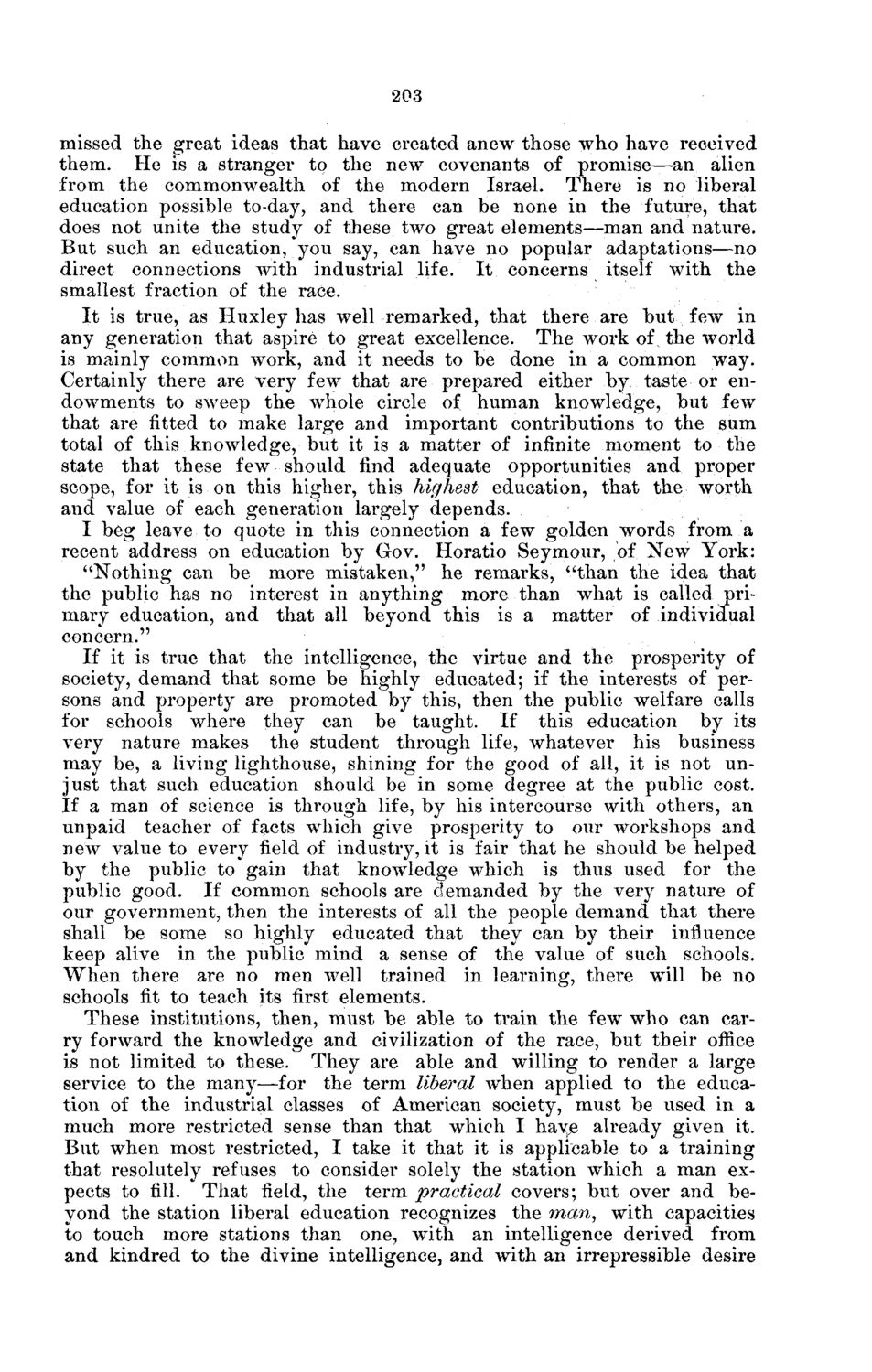| |
| |
Caption: Board of Trustees Minutes - 1878
This is a reduced-resolution page image for fast online browsing.

EXTRACTED TEXT FROM PAGE:
203 missed the great ideas that have created anew those who have received them. He is a stranger to the new covenants of promise—an alien from the commonwealth of the modern Israel. There is no liberal education possible to-day, and there can be none in the future, that does not unite the study of these two great elements—man and nature. But such an education, you say, can have no popular adaptations—no direct connections with industrial life. It concerns itself with the smallest fraction of the race. I t is true, as Huxley has well remarked, that there are but few in any generation that aspire to great excellence. The work of the world is mainly common work, and it needs to be done in a common way. Certainly there are very few that are prepared either b y taste or endowments to sweep the whole circle of human knowledge, but few that are fitted to make large and important contributions to the sum total of this knowledge, but it is a matter of infinite moment to the state that these few should find adequate opportunities and proper scope, for it is on this higher, this highest education, that the worth and value of each generation largely depends. I beg leave to quote in this connection a few golden words from a recent address on education by Gov. Horatio Seymour, of New York: "Nothing can be more mistaken," he remarks, "than the idea that the public has no interest in anything more than what is called primary education, and that all beyond this is a matter of individual concern." If it is true that the intelligence, the virtue and the prosperity of society, demand that some be highly educated; if the interests of persons and property are promoted by this, then the public welfare calls for schools where they can be taught. If this education by its very nature makes the student through life, whatever his business may be, a living lighthouse, shining for the good of all, it is not unjust that such education should be in some degree at the public cost. If a man of science is through life, by his intercourse with others, an unpaid teacher of facts which give prosperity to our workshops and new value to every field of industry, it is fair that he should be helped by the public to gain that knowledge which is thus used for the public good. If common schools are demanded by the very nature of our government, then the interests of all the people demand that there shall be some so highly educated that they can by their influence keep alive in the public mind a sense of the value of such schools. W h e n there are no men well trained in learning, there will be no schools fit to teach its first elements. These institutions, then, must be able to train the few who can carry forward the knowledge and civilization of the race, but their office is not limited to these. They are able and willing to render a large service to the many—for the term liberal when applied to the education of the industrial classes of American society, must be used in a much more restricted sense than that which I have already given it. But when most restricted, I take it that it is applicable to a training that resolutely refuses to consider solely the station which a man expects to fill. T h a t field, the term practical covers; b u t over and beyond the station liberal education recognizes the man, with capacities to touch more stations than one, with an intelligence derived from and kindred to the divine intelligence, and with an irrepressible desire
| |